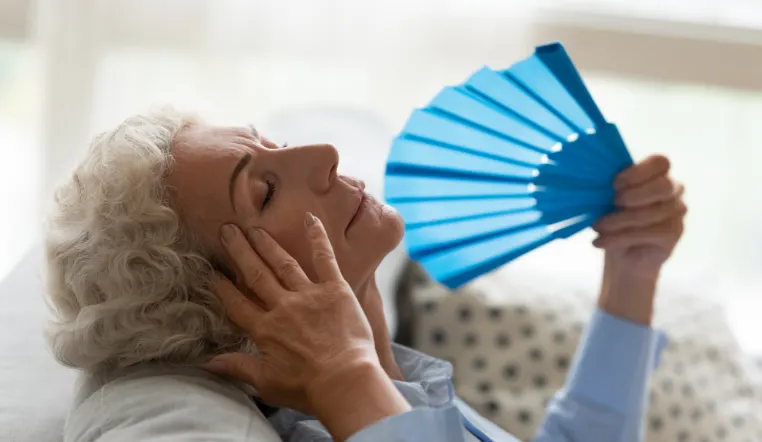If you are the caregiver of an aging loved one, be aware that summer can produce just as many safety risks as winter in Central Ohio does. Heat and humidity can be especially dangerous for older adults. Mosquitoes, pollen, and ticks can also be problematic.
We’ve pulled together a list of the most common health hazards to be mindful of when caring for a senior this summer.
Here’s 11 Tips for Keeping Central Ohio Seniors Safe this Summer:
1. Remind older loved ones to avoid being outdoors between noon and 4:30 pm. Those are typically the hottest hours of the day. Taking your daily walk together in the early morning or late evening hours is best. The same goes for yard work and gardening.
2. Monitor both the pollen count and air quality index. An elevated pollen count and poor air quality can further aggravate pulmonary and coronary problems. Sites such as weather.com allow you to sign up to receive alerts when either of these reaches dangerous levels.
3. Maintaining hydration is extra important during the hazy days of summer. Especially if your family will be spending time outdoors. 8-10 glasses of water per day is the recommendation. Senior loved ones can also improve hydration by eating fruits and vegetables with a high water content. Popular ones include watermelon, cantaloupe, salad greens, cucumber, tomatoes, grapefruit, and berries.
4. Just as important as knowing which foods improve hydration, also know which foods contribute to dehydration. Some of the more popular ones to avoid include sodas, energy drinks, sugary kids’ drinks, and alcohol.
5. Double up on the sunscreen. Dermatologists recommend applying the equivalent of a shot glass (about two tablespoons) of sunscreen with an SPF of 30 every two hours.
6. Encourage your aging loved one to protect their vision by wearing sunglasses. A good pair of sunglasses can help prevent macular degeneration. How to Pick Good Sunglasses from WebMD can help you sort out which sunglasses are little more than a fashion statement and which ones offer real protection.
7. Wear a light-weight long sleeve top and hat when you are outdoors. They can protect you from both the harmful UVA and UVB rays of the summer sun and from ticks and mosquitoes.
8. Mosquitoes can carry diseases like the West Nile Virus. For older adults who often have weaker immune systems, the virus can be especially deadly. Be sure to use insect spray when outdoors. If you will be sitting outside, having a fan blowing can help repel mosquitoes as can citronella candles.
9. Be aware of medication side effects. Seniors take an average of five medications per day. Many more common ones increase sun sensitivity. That means they can experience sun burn and sun poisoning faster. Be sure to compare your aging loved ones medication with this Sun Sensitivity list from AARP.
10. Conduct a tick patrol every time you or an aging loved one comes back in to the house after spending time outdoors. Make sure to look through their hair, skin and clothing. Don’t forget to check the family pets, too!
11. Finally, be aware of summertime stings. Bees, wasps, and other insects can cause potentially dangerous allergic reactions. While most people won’t experience more than pain and itchiness, if an older adult is stung be on the lookout for swelling, dizziness, and hives. These symptoms need to be checked out immediately by a physician.
We hope these tips help you keep the senior adult you love safe in the sun this summer!
Do you have any tips that you would add to this list? Let us know below!



